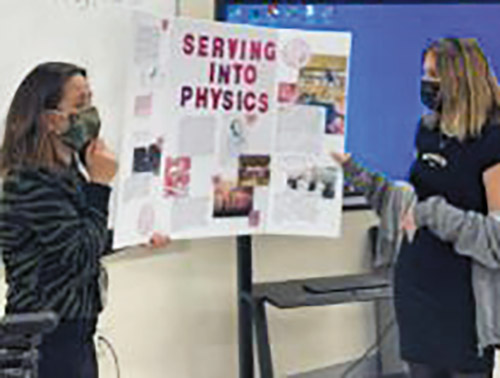


After finishing several units in various subjects across the curriculum, Project-Based Learning took center stage at Tenafly Chabad Academy, to deepen and expand students’ understanding, appreciation and sophistication.
As part of the social studies curriculum, the eighth grade students spent several weeks learning about World War II and the Holocaust. To grasp the power propaganda, students completed a museum walk-through, in which they carefully examined pictures and analyzed different mediums of Nazi propoganda that was used against the Jews during WWII. Afterwards, the classes gathered together for an in-depth discussion of the tools used throughout the anti-Semitic propaganda. In the next holocaust unit, the students read and examined some of the poety that was written during WWII and the Holocaust. The students broke up into groups to search for and analyze different poems, exploring their figurative language, themes, messages and nuances. Then the classes came together to share, read and discuss the poems.
In physics, students used a hybrid model to present their “Physics Behind Sports” projects to their classmates, and to the parents who joined in on Zoom. The students transformed their science research paper on physics’ inseparable connection to sports, into a large visual that illustrated and explained how each sport relied on the physics behind it. Relating physics to their own lives brought physics to life, helping the students internalize the complex material—and even improve their sports skills!
In the same spirit, Chumash classes created their very own “Yosef Chronicles’’ as a culmination of finishing chapter 41 in the book of Bereshit. In creating those chronicles, the students used their knowledge of the pesukim and the commentators, along with their critical thinking skills, technology, and creativity, to compose their own editorials on Yosef’s life. Everyone was inspired by the students’ depth of thinking and insightful interpretations of Yosef’s own triumphs and challenges.
Throughout the different subjects, using the real-world scenarios, challenges and problems, students gained useful knowledge and skills that no doubt enhanced their understanding of the material, as well as encouraged their critical thinking, problem-solving, teamwork and self-management.













